Employer Branding 101
Your employer brand is an integral and perhaps often overlooked aspect of the recruiting process. It pulls from all your employees’ experiences working at your organization. In recruiting, those experiences are packaged and translated for an external audience.
Employer branding differs from other aspects of recruitment strategies in that you’re selling a story – one based in truth, of course – to prospective “buyers” (future employees).
Since 69% of employees agree that it is very important for their employer to have a brand they are proud to support, crafting an employer brand that is true to employees’ experiences and highlights the very best of your company is more important than ever.
Explore the what, the why, and the how of employer brand storytelling
What is Employer Branding in Recruiting?
Abstractly, we’re all familiar with employer brand. It’s the culture that defines our workdays: The offer of help from a teammate, the time at which you shut your laptop, the satisfaction (or lack thereof) you derive from a day of hard work.
To offer a more concrete definition, employer branding is how organizations represent themselves to job seekers, their employees, and the overall market. A powerful tool, an employer brand can attract and engage talent in a personable way through strategic and creative communications.
While some may believe that the goal of employer branding in recruiting is to build awareness, and that is certainly part of it, the main goal is to position your organization as an employer of choice.
What does an investment in employer brand do for you?
While this may strike some as sentimental, the investment in employer branding matters for reasons beyond employer contentedness. This cornerstone recruitment strategy creates more stable workforces, enhances value (in some cases!), and makes a notable difference in recruiting costs.
Good employer branding creates a positive windfall for the rest of your recruiting strategy. Authentically sharing your employer brand leads to more informed candidates. This cuts down key recruitment metrics like time-to-fill and creates a more positive experience for candidates, recruiters, and hiring managers.
Employer Brand is how people experience working at your company.
Employer Value Proposition is what is offered in return for that work.
Why Does Your Company Need an Authentic Employer Brand?
Why is a strong employer brand so important to the recruitment process? A well-defined employer brand ensures that expectations are authentically set for job seekers. Authenticity helps improve the match between job seekers and companies, ideally contributing to a more efficient talent search with a higher quality hire and stronger retention.
With fewer people "thriving" at work, companies need to dig deep to resolve the disconnect in a tight labor market.
Not only can an employer brand strategy improve applicant quality, but it also can predict and respond to potential employees’ questions before you even ask. An employer of choice should know how to highlight and promote the aspects of their brand that reflect their strengths.
While competition for labor has declined in recent years, it’s still important to build up your employer brand. In fact, over 78% of the world’s most attractive employers are committed to centering employer brand as a top priority. Make your story clear and compelling to differentiate yourself from the competition.
Trends in Employer Branding
Employer branding is a constantly evolving practice, shaped and reshaped by the shifting expectations of job seekers and the ever-changing needs of your business. In fact, our experts advise reviewing and updating your employer brand once every few years to make sure it still reflects your company’s value proposition.
Just look at some of the most recent trends shaping employer branding, some of which you might have already integrated into your recruitment marketing strategy:
The Generational Divide:
A new generation of workers is entering the workforce, and they bring new opinions and expectations of their employers. Attracting Gen Z requires being upfront about company culture, environmental responsibility, and your company’s non-financial offerings. This younger generation cares deeply about growing within their careers (though they are less tied to the idea of growing within one company) and want to gain the skills to be able to do so. At the same time, companies must balance the needs and desires of older generations. Millennials may care more about remote flexibility as they have young children at home, while Gen Xers and Boomers may expect greater health and retirement benefits at their career’s sunset. Balancing all of this means understanding your employees on both a macro and micro level, which can be far easier with experts involved.
Belonging:
With everything that has happened in the diversity, equity, and inclusion space in the past four years, many leaders have become apprehensive and often paralyzed when it comes to moving DEI initiatives forward. However, it is still imperative to create a workplace that makes differing perspectives and diverse ways of working a priority. Building a culture of belonging, in which all workers feel welcomed, is a challenge, yes, but with the right employer brand partner, you can build it into the very DNA of your company.
Skills-Based Hiring:
The tight labor market has prompted employers to rethink the way they approach hiring, even leading to questions of what is a necessity for any given position. This has led to a rise in skills-based hiring – the practice of hiring for the candidate’s skills rather than degrees or accolades. This directly impacts employer brand, as you have to curate a culture that is accepting of all backgrounds and unique problem-solving initiatives.
Seeing is Believing: Ways to Showcase Your Employer Brand
Once you’ve done the work of defining your company’s employer brand, how do you showcase that you are an employer of choice? There are endless opportunities to do so, including refreshed career sites, social media campaigns, or even physical advertisements.
Here are a few examples of employers increasing their newly defined brand’s visibility:
E&J Gallo Winery
After conducting a thorough audit to better understand E&J Gallo Winery’s current state, the Appcast strategy and creative teams mapped out the elements of the company’s refreshed employer brand identity and career site.
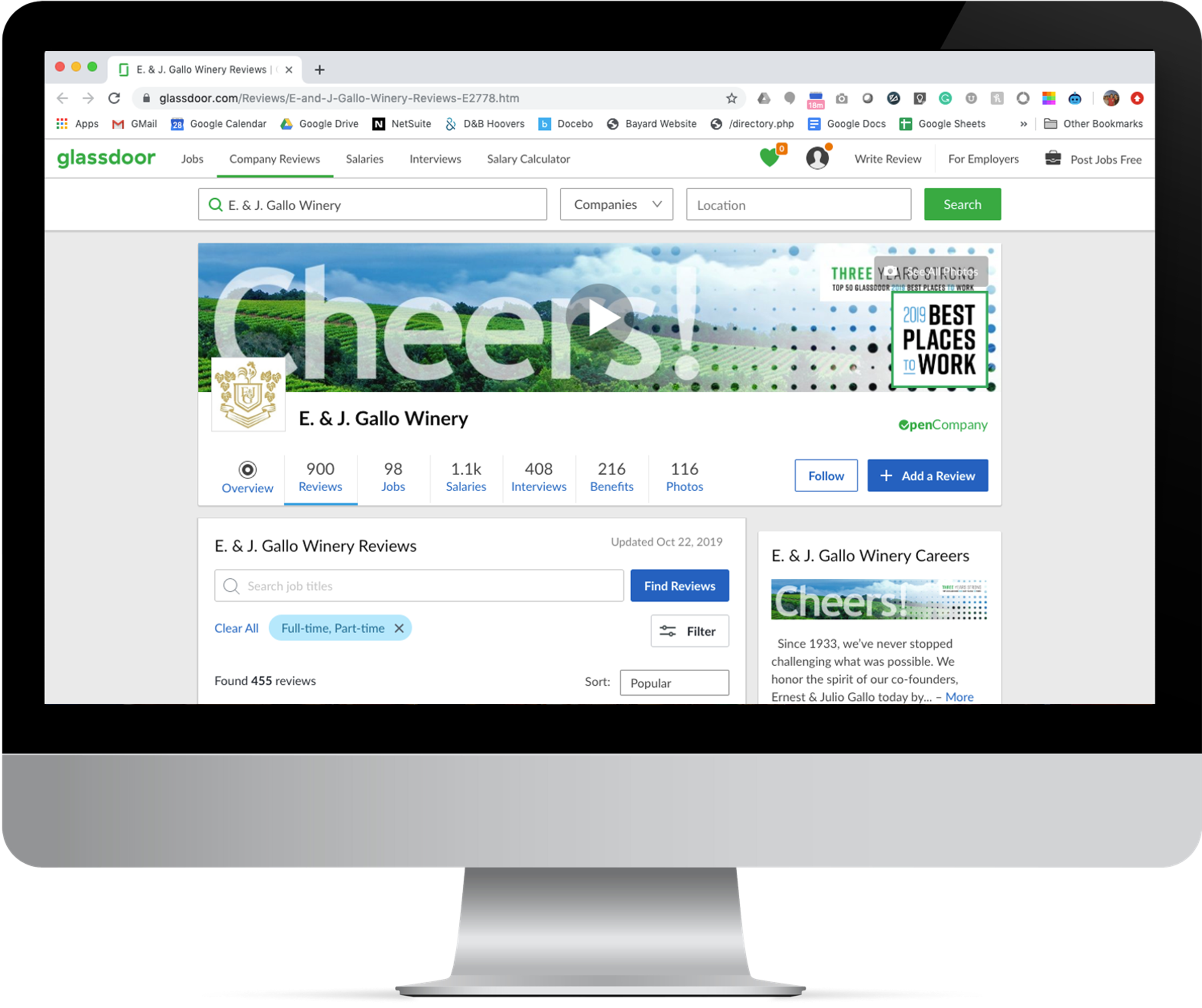
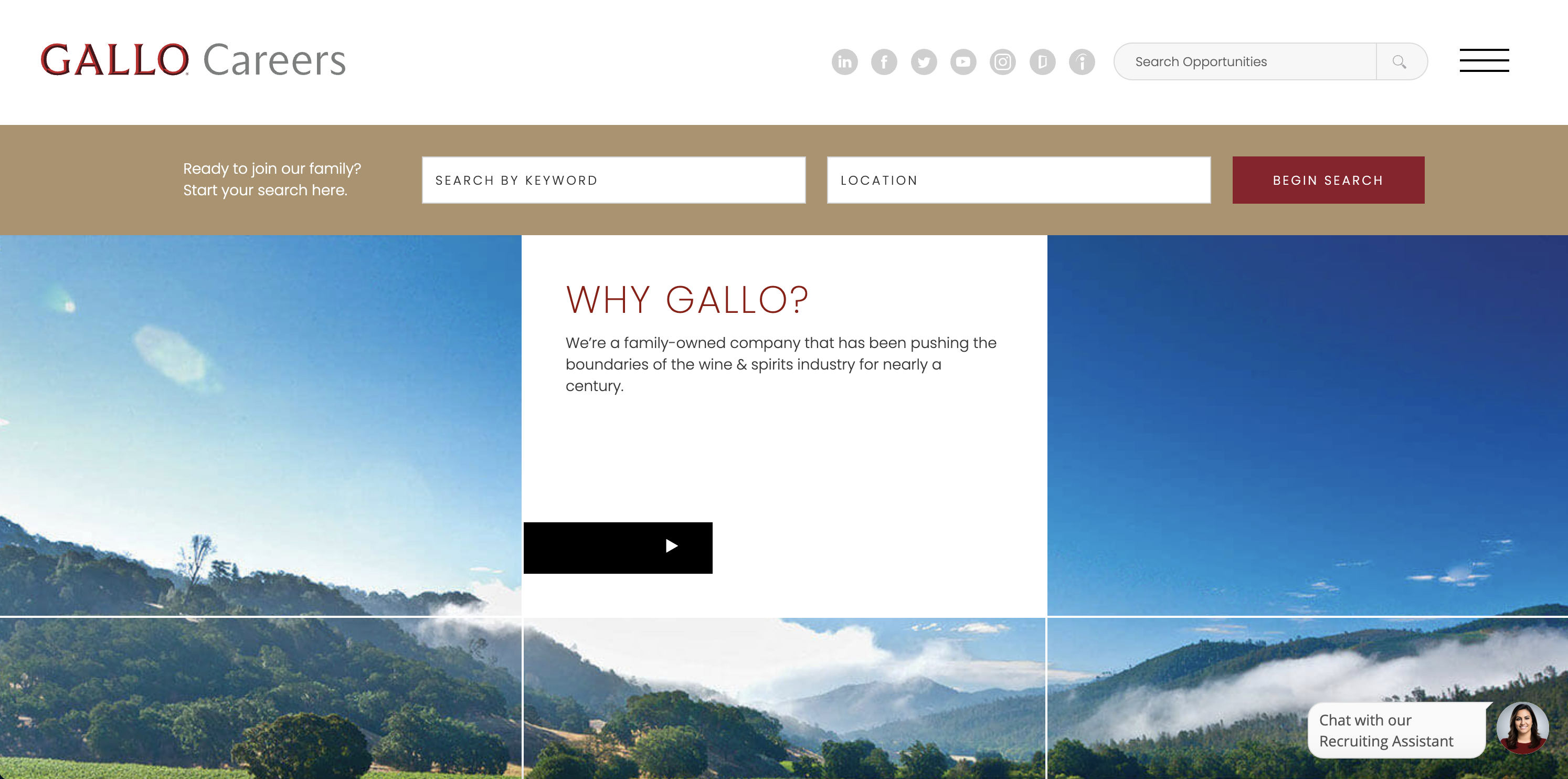
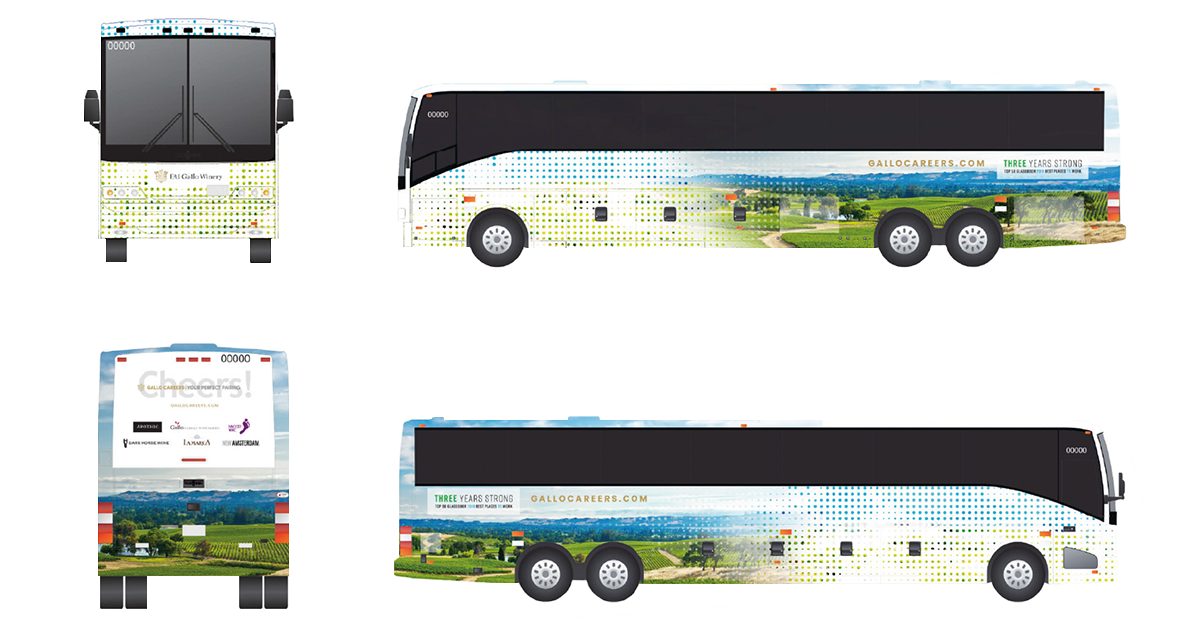
Six Flags
Six Flags identified the urgent need to support hiring at 22 park locations, but they had low confidence they were spending their budget efficiently and effectively.
Appcast developed an AI-powered, omni-channel marketing strategy that would allow Six Flags to utilize best-in-class technology and data to maximize candidate reach and meet their hiring needs.
Take a look at their TikTok campaign!
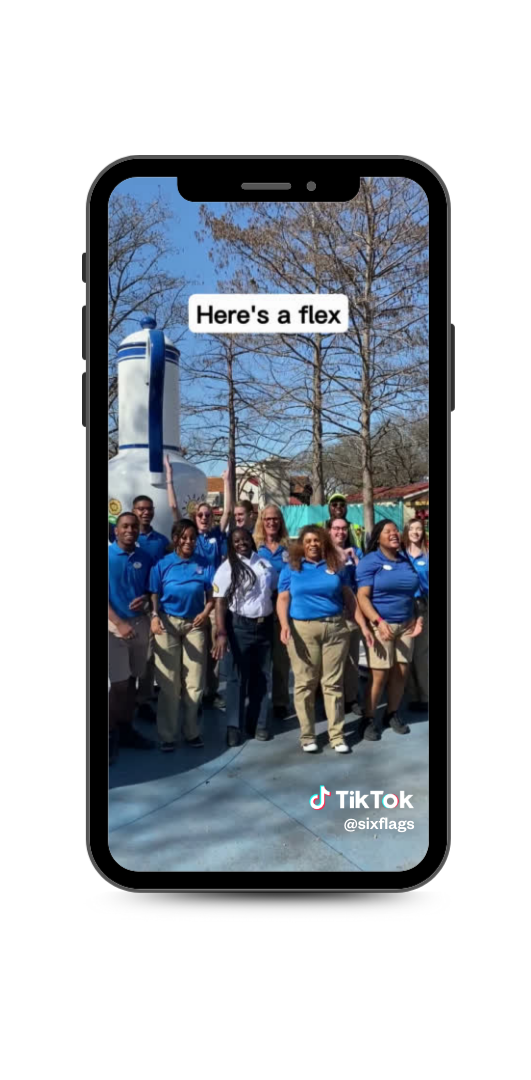
Utah Transit Authority
The Utah Transit Authority needed a recruitment marketing solution that would help them build a reliable candidate pipeline and increase their brand awareness within a limited budget. The Appcast team helped them complete a brand and career site refresh and a cross-channel job advertising campaign to attract new job seekers.
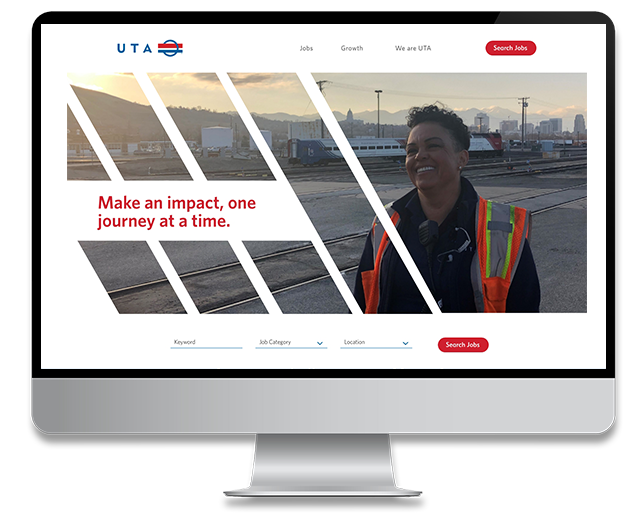
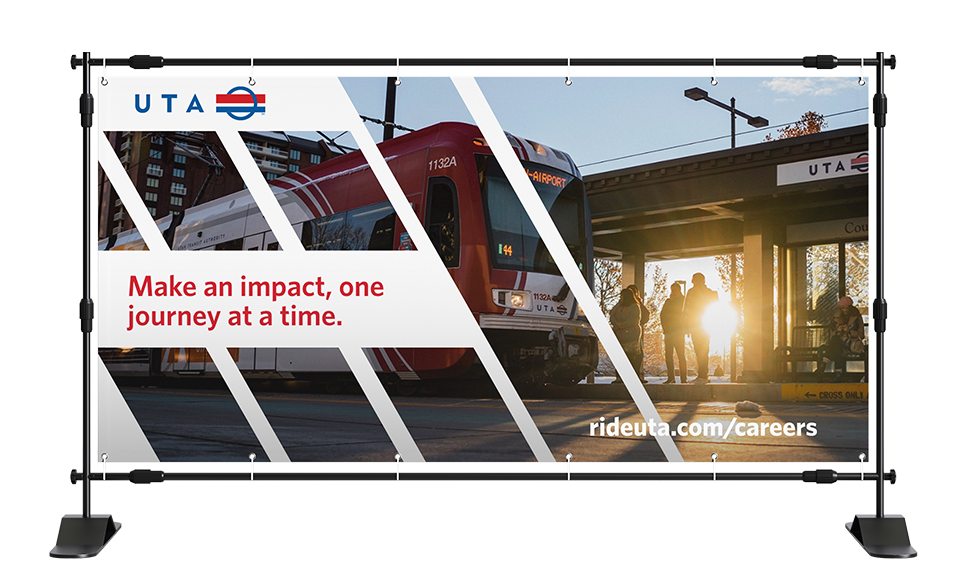
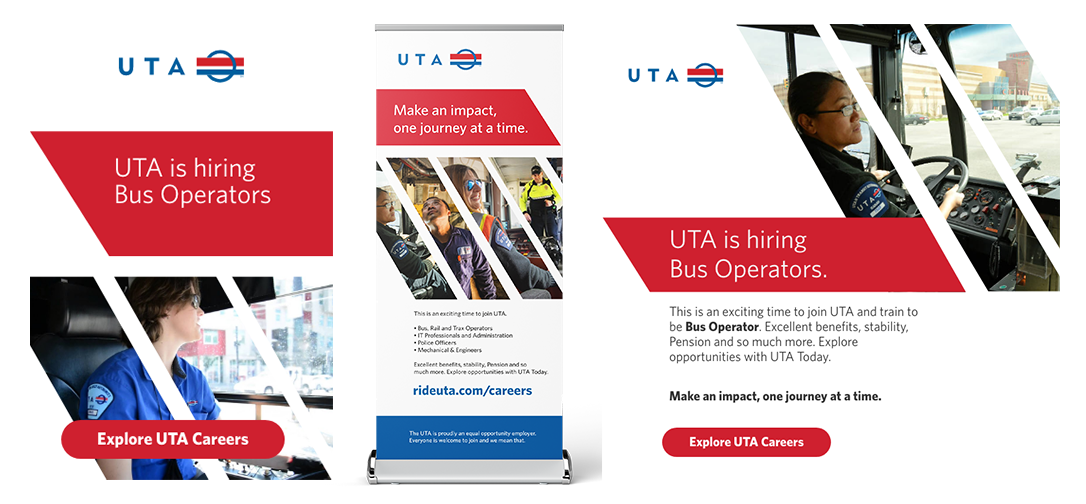
Employer Brand in Your Recruitment Funnel
Employer branding is just one aspect of a full-funnel recruitment strategy. After defining and crafting your employer brand story, you need to then think about how and where to tell it!
Our team at Appcast knows just how to advertise this employer brand content in a way that stirs up interest in your company and widens the very top of your recruitment funnel. You will be positioned as an employer of choice.
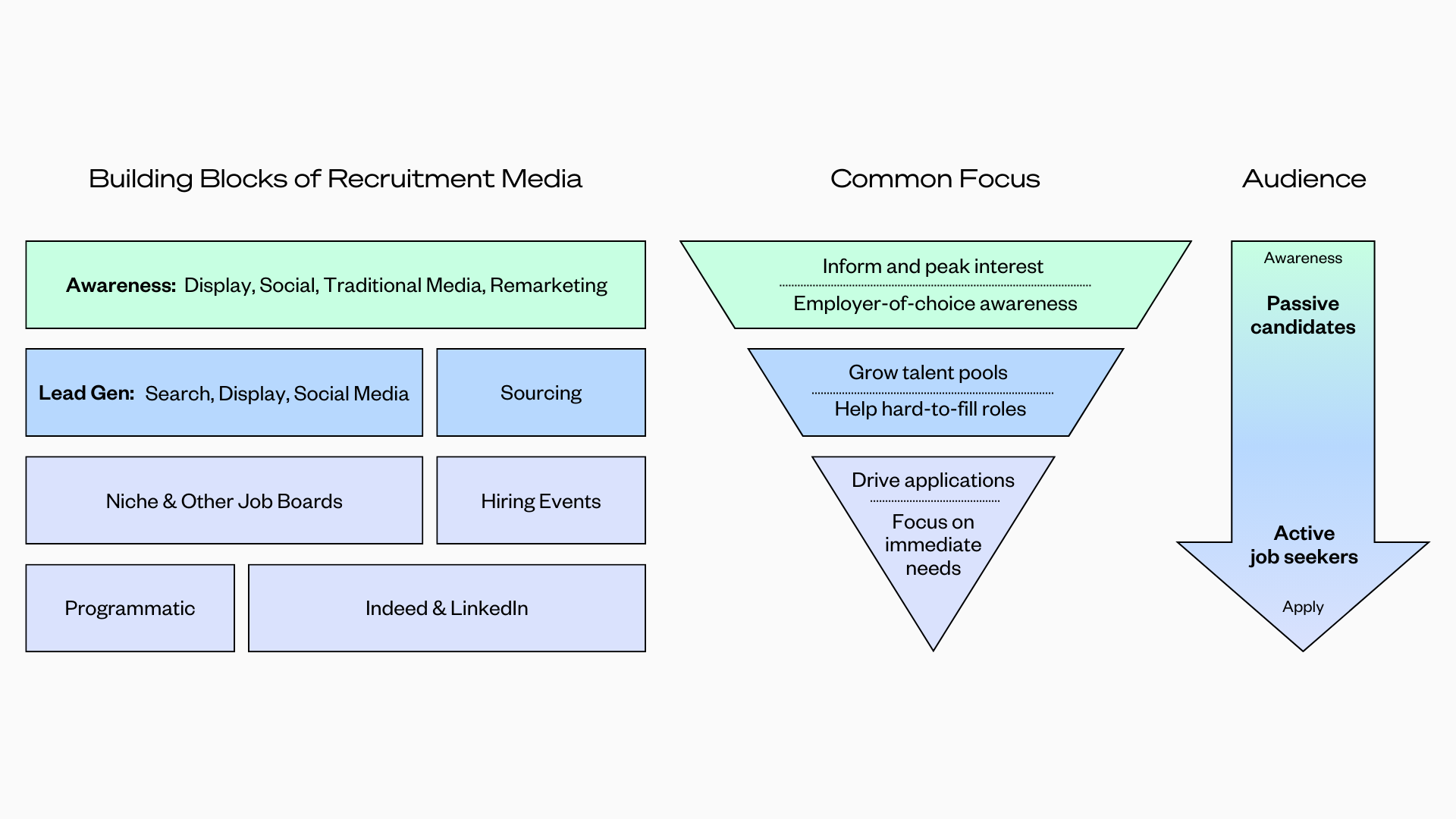
Employer branding is just one aspect of a full-funnel recruitment strategy. After defining and crafting your employer brand story, you need to then think about how and where to tell it!
Our team at Appcast knows just how to advertise this employer brand content in a way that stirs up interest in your company and widens the very top of your recruitment funnel. You will be positioned as an employer of choice.